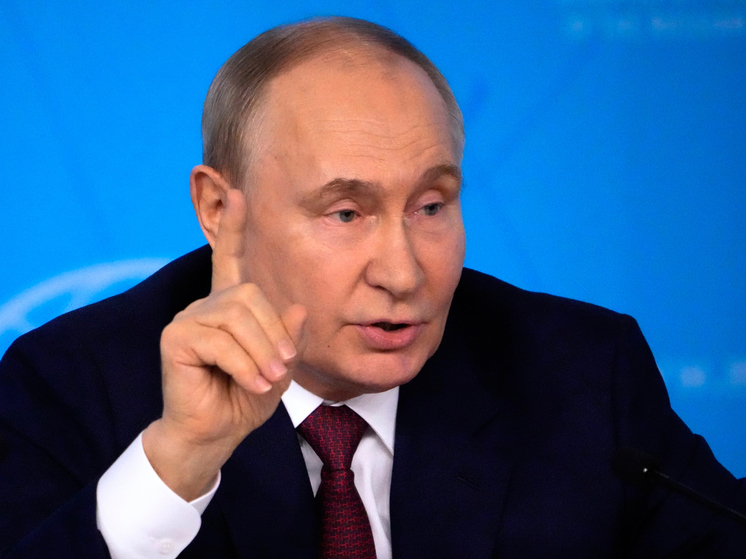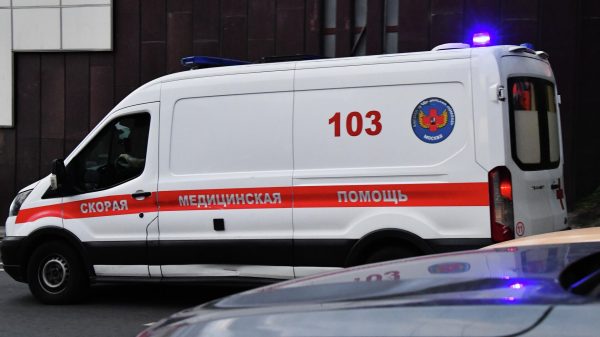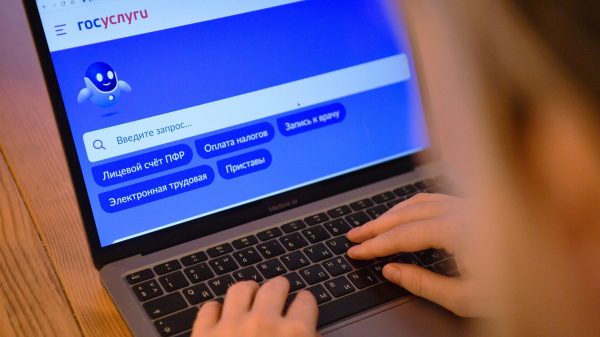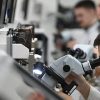“They will have something to talk about”
Vladimir Putin interrupted the agenda of the Swiss conference on Ukraine opening on June 15, making a speech at the Russian Foreign Ministry. He spoke about the conditions under which Russia would be ready to cease fire and sit down at the negotiating table, and also announced his intentions, together with China and other Asian partners, to build an alternative to the Euro-Atlantic security system. Moscow’s key goals for the near future are the non-aligned status of Ukraine, the entry into the Russian Federation of the DPR, LPR, Kherson and Zaporozhye regions within the 1991 borders, the lifting of Western sanctions and the squeezing of American military bases from Eurasia.

The media began to arrive at the Foreign Ministry by 9 a.m. By that time, the skyscraper had already been surrounded by a dense police cordon, indicating that the top official was about to visit (or not). For the first time in many months, foreign journalists from unfriendly countries were invited to the cradle of Russian diplomacy, and there was a nervous excitement among them. «Nothing just happens, if they invited us, then something will happen,» they reasoned. The Russian media also tried to guess what exactly Vladimir Putin had decided to tell the world. It seemed that everything had already been said last week at the SPIEF (or not everything?). Two versions took precedence: the president would announce a change in the nuclear doctrine or break off diplomatic relations with the United States.
In the midst of the discussion, Maria Zakharova flew into the press center wearing a blouse with a huge white flower. She was interested in whether everything was okay with the media — whether everyone had enough water and food. But the intrigue remained an intrigue. The questions that Zakharova agreed to answer did not concern the content of the upcoming event. Foreigners, meanwhile, complained about the lack of translation. Taking advantage of a rare opportunity, the heads of the bureau themselves came to the Ministry of Foreign Affairs, and not their Russian-speaking employees. And then it suddenly became clear that there were sandwiches and coffee, but for some reason there were no headphones for simultaneous translation. However, they promised to give everyone a link through which Putin’s speech could be heard in all major languages.
The head of state arrived at the Foreign Ministry in the afternoon — an hour later than planned. However, taking into account the late departure from Dubna on Thursday (and the meeting of the Council on Science and Education that was held there ended at around 9 pm), it was even early. By his arrival, the entire leadership of the ministry, as well as a few invited officials, deputies and senators, were already sitting in the briefing room. Putin took a chair on the left side of the table, and Sergei Lavrov, who accompanied him, sat in the opposite corner. Everyone froze in anxious anticipation.
However, as the president spoke, the faces of those present gradually smoothed out. None of the alarmist forecasts (and there were assumptions that talk would immediately turn to the use of tactical nuclear weapons or their transfer to someone like the DPRK and the Houthis) ultimately came true. Vladimir Putin did not threaten, he proposed. First of all, develop your own version of ensuring security in Eurasia and invite other countries to cooperate. “We are witnessing the collapse of the Euro-Atlantic security system; it simply does not exist,” Putin emphasized. He noted that he had already discussed this idea with Chinese President Xi Jinping. What Russia is proposing, according to the president, “complements and is fully consistent with the Chinese global security initiative.” Key principle: the security of some states cannot be ensured at the expense of the security of others.
This alternative Eurasian project, Vladimir Putin believes, should be open to all European states, including NATO ones. “The danger to Europe does not come from Russia. The main threat for Europeans is their critical and ever-increasing dependence on the United States,” assured GDP, noting that such Europatriots as de Gaulle and Helmut Kohl, unlike the current Eurostatists, understood perfectly well that, first of all, “Europe needs to be in good relations with Russia.» He supported the Belarusian initiative “Charter of Multipolarity and Diversity in the 21st Century,” which could form the basis of a new Eurasian security system. In the future, according to GDP, “we must work towards curtailing the military presence of external powers (that is, the United States) in the Eurasian region.” “If we build a reliable system, this will not be necessary. And even now it doesn’t exist — occupation and that’s it,” he believes.
However, the main proposal of the head of state concerned ending the conflict in Ukraine. For the first time, Putin publicly put forward conditions under which Russia would be ready to immediately cease fire and begin negotiations. This is, firstly, the withdrawal of units of the Ukrainian Armed Forces from the territories of the LPR, DPR, Lugansk and Kherson regions within the administrative boundaries with which they were part of Ukraine in 1991. (It is in this configuration that they should be subjects of the Russian Federation. And this status is not discussed at all). Secondly, the Kyiv authorities’ refusal to join NATO. “Our principled position is the neutral, non-aligned status of Ukraine, its demilitarization and denazification,” Putin said. He emphasized that the essence of the Russian proposal is not a temporary truce, as the West wants. “This is not about freezing the conflict, but about its final end,” the president said. There is a third condition, this time not for Ukraine — the abolition of all Western sanctions and restrictions, the return of frozen reserves, etc.
Vladimir Putin also listed the conditions under which Moscow was ready to stop the SVO in the spring of 2022. Then, as it turned out, there was no talk about including the Kherson and Zaporizhia regions into the Russian Federation. Kyiv could retain sovereignty over these regions, but at the same time, through a land servitude, guarantee Russia the right of access to Crimea through the territory of the Kherson region and the Zaporizhia region. Obviously, the current proposals look much tougher. However, Putin has repeatedly warned that the 2022 agreements are only a basis from which to build. And we must proceed from the realities of today and the balance of power on the ground. Now, as is known, Russian troops have an undisputed advantage in the SVO zone. On the other hand, such harsh wording indicates that Moscow is not ready to compromise and will seek to fulfill the conditions voiced by the president in any available way.It was expected that after the conclusion of the president’s speech, journalists would be able to communicate with the participants of the event, who would share their impressions and expectations. However, as per tradition, the security service intervened in this plan: when the restrictions on movement were lifted, it turned out that everyone had already left. However, the media were rewarded with the appearance of Foreign Minister Sergei Lavrov, who briefly recounted the essence of the president’s main statements and agreed to answer several questions, including from representatives of unfriendly countries. In particular, they asked how much the West can trust Russia. And we received the answer that Russia was not asking us to trust it at all. “I don’t care whether the West trusts us or not, they must realize the real state of affairs,” Lavrov said. He explained that the genre of the president’s speech does not imply that the proposals put forward by him will be formalized in some kind of official paper and sent to the heads of state and international organizations. “We are not going to run after anyone, our ambassadors will further explain what is meant and the background of the whole situation. We will expect that a reaction will follow,” Lavrov said. He recalled that the main recipients of the speech have now gathered for the G7 summit in Italy and “Zelensky is walking around somewhere.” Well, tomorrow the conference on Ukraine begins in Switzerland. “They will have something to talk about,” the foreign minister concluded.






















































Свежие комментарии